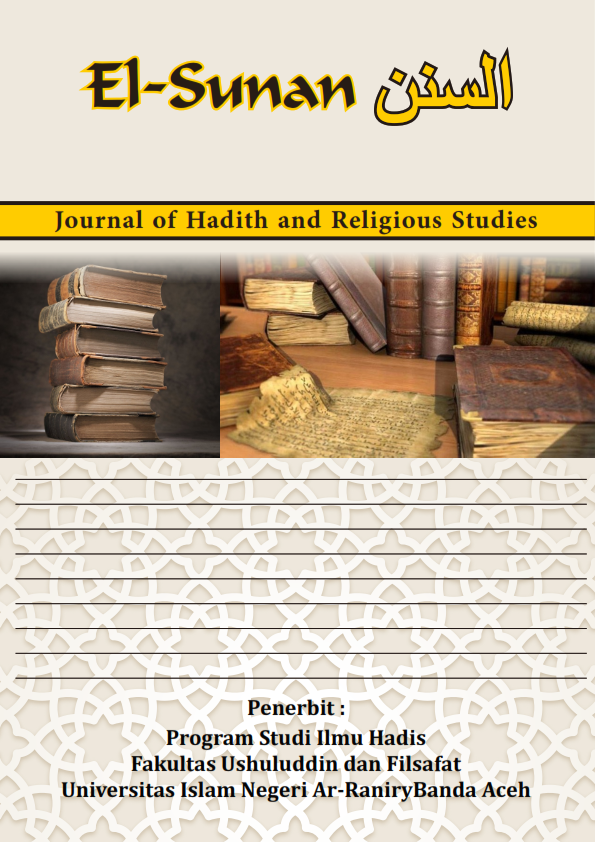Prophetic Ethics and the Foundations of Islamic Leadership
DOI:
https://doi.org/10.22373/el-sunan.v3i1.7679Keywords:
Prophetic Tradition, Islamic Leadership, Ḥadīth, Ethics, ResponsibilityAbstract
This study explores the ethical and theological foundations of leadership as reflected in the prophetic traditions (ḥadīth) of Islam. In light of contemporary challenges—such as moral erosion, authoritarian tendencies, and the neglect of justice in Muslim leadership—this research revisits key ḥadīth to recover the prophetic vision of governance rooted in responsibility, consultation, and public service. Employing a mawḍūʿī (thematic) approach, the study analyzes three core aspects of leadership: the obligation to establish leadership in a community, the method and ethical considerations for selecting a leader, and the moral accountability of those in power. Drawing from authentic ḥadīth collections and classical commentaries, the findings reveal that leadership in Islam is both a religious and rational imperative (farḍ kifāyah) aimed at safeguarding unity, promoting justice, and ensuring communal welfare. The prophetic model redefines leadership as a trust (amānah), where every individual—from political leaders to heads of households—is accountable for those under their care. These insights remain profoundly relevant, offering an ethical framework for leadership that transcends hierarchy and invites a return to compassionate, principled governance.
References
Abu Hasan Muslim al-Hajjaj, Shahih Muslim, (Beirut: Dar al-Fikr, t.th).
Abu Daud, Sunan Abu Daud, (Beirut: Dar al-Fikr, t.th)
Ahmad Zuhdi Mahdhar, Qamus “Karabyak” Al-‘Ashry ‘Araby – Indonesiy, Cet. Kelima (Yogyakarta: Muassasah ‘Ali Ma’shum Ma’had Kerapyak al- Islamy, 1996),
A.J. Wensink, Mu’jam al-Mufahras Li Alfaz al-Hadis al-Nabawy, Juz I (Leiden: Pustaka Barel, 1965).
Al-‘Asqalany, Fath al-Bary, Cet.XIII (Mesir: al-Baqiyah, t.th), hal. 106
Departemen Pendidikan dan Kebudayaan, Kamus Besar Bahasa Indonesia, (Cet. II, Jakarta: balai Pustaka, 1990).
Imam Ahmad, Musnad Ahmad bin Hanbal, Jilid III, (Dar Ash-Shadr, t.t.) h. 139
Imam Bukhary, Shahih Bukhary, (Singapura: Maktabah wa Mathba’ah Sulaiman Mar’i, t.t.)
Imam Muslim, Shahih Muslim, Jilid III, (Mesir: Dar Ihya al-Kutub al-‘Arabiyah, t.t.)
Imam Nasai, Sunan al-Nasai, Juz VIII (Cet. I; Beirut: Dar al-Kutub al-‘Ilmiyah, 1995M/1416H)
Imam al-Turmuzi, Sunan al-Turmuzi, Jilid IV (Mesir: Dar Ihya al-Kutub al- ‘Arabiyah, t.t.)
Jalaluddin Al-Suyuthi, Tadrib al-Rawi fi Syarh Taqrib al-Nawawy, Juz I (Madinah: al-Maktabah al-‘Ilmiyah, 1972).
M. Syuhudi Ismail, Metode Penelitian Hadis Nabi (cet. I, Jakarta: Bulan Bintang, 1992)
.------------------------------, Kaidah Kesahihan Sanad Hadis (Jakarta: Bulan Bintang, 1988).
Muhammad ‘Ajjaj al-Khathib, Ushul al-Hadits ‘Ulumuhu wa Mushthalahuhu (Beirut: Dar al-Kutub al-‘Ilmiyah, 1989).
Muh Zuhri, Telaah Matan Hadis Sebuah Tawaran Metodologis, (Cet. Pertama: Yogyakarta, LESFI, 2003)
Al-Suyuthi, Al-Jami’ al-Shaqir, (Cet. I; Mesir;:Abdul Hamid Ahmad Hanafi, t.t.)
Al-Syaukani, Nailul Authar, Juz VIII, (Mesir: Musthfa Babi al-Halaby, 1353 H)
Downloads
Published
How to Cite
Issue
Section
License
Copyright (c) 2025 Mira Fauziah

This work is licensed under a Creative Commons Attribution-NonCommercial-ShareAlike 4.0 International License.
- Authors retain copyright and grant the journal right of first publication with the work simultaneously licensed under an Attribution-NonCommercial-ShareAlike 4.0 International (CC BY-NC-SA 4.0) that allows others to share the work with an acknowledgment of the work's authorship and initial publication in this journal.
- Authors are able to enter into separate, additional contractual arrangements for the non-exclusive distribution of the journal's published version of the work (e.g., post it to an institutional repository or publish it in a book), with an acknowledgment of its initial publication in this journal.
- Authors are permitted and encouraged to post their work online (e.g., in institutional repositories or on their website) prior to and during the submission process, as it can lead to productive exchanges, as well as earlier and greater citation of published work.










